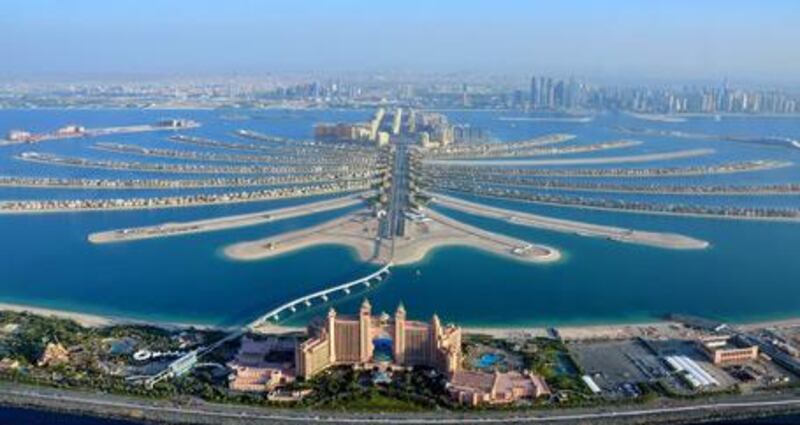Any drawn out negotiations on a restructuring of Dubai World debt could undermine an improving economic outlook for the Gulf, a top banker warns. Henry Azzam, the chief executive of operations in the MENA region at Deutsche Bank, said the outcome of restructuring talks would weigh heavily on the regional economy.
"All eyes today are on Dubai World. The market expects it to be a speedy and transparent agreement. But the risk is that the exercise could be lengthy and lead to negative surprises in the months ahead," Mr Azzam told a Gulf securities forum. "Nobody wants to see more skeletons come out of the closet." Dubai World, which owes about US$22 billion (Dh80.8bn), is in talks with creditors on a standstill agreement and a "road map" for the group's restructuring.
The Dubai Financial Support Fund (DFSF), funded with $20bn from Abu Dhabi, has spent $6.2bn to service the conglomerate's debt payments and other fees to keep Dubai World operational. The next large payment comes due next month when Limitless, one of Dubai World's developers, must repay $1.2bn. The two-year syndicated Islamic loan does not have the option of an extension, One potential stumbling block is the DFSF's intention to use Dubai World assets as collateral in return for any cash injections it makes to support the company. Some of its creditor banks have objected to this arrangement because they say it could adversely impact their place in the pecking order of creditors, people familiar with the matter say.
The Dubai Government-owned group said in November that it would seek to delay debt repayments to 97 banks as part of a plan to give itself time to restructure, while preventing creditors from pursuing legal action to recover debts. Rising borrowing costs would also delay the economic recovery, Mr Azzam said. "I worry that banks will continue to be strict on their lending policies. Borrowing costs will become more expensive."
He cited the pricing of the sukuk, or Islamic bond, from the Saudi Arabian property firm Dar Al Arkan as an example. Deutsche Bank is one of the managers of the $750 million sukuk, which is expected to be priced soon. "Interest rates could easily go to more than 10 per cent," Mr Azzam said. Several events last year, including the financial troubles of two large Saudi conglomerates, tight liquidity in the aftermath of the Lehman Brothers collapse and Dubai World's standstill request, discouraged banks from lending and undermined investors' confidence in the region.
Mr Azzam said it could take years for the region's economy to generate the level of economic activity seen in 2008. Last year, the six Gulf countries had $860bn in nominal GDP compared to $1 trillion in 2008. "At current growth levels it will take two to three years to return to that." In addition, Greece's debt woes could further dampen investor spirit. "Greece could be the dress rehearsal of what could happen to any [regional] sovereign that has a tight debt situation. People are once again moving away from risky assets, - for example from emerging markets to [US] Treasuries," Mr Azzam said. "This means rising costs for indebted countries and emerging markets."
The US$750 million (Dh2.75 billion) sukuk by Dar Al Arkan Real Estate of Saudi Arabia marks the first international issue from the region since Dubai World's standstill request in November rattled investor confidence. Henry Azzam, the chief executive of MENA operations at Deutsche Bank, said the bond could easily be priced to yield "more than 10 per cent". The sale is expected to be closed soon. The issue is widely seen as a litmus test for the region's ability to raise new funds following the November events. Deutsche Bank, Goldman Sachs and Unicorn Investment Bank, which is based in Bahrain, are managing the sale. Investor meetings are being held in the Middle East, Europe, Asia and the US. Dar Al Arkan is expected to use the proceeds to refinance a $600m sukuk which Bloomberg said is due next month. The company plans to spend 2.7bn Saudi riyals (Dh2.64bn) this year, the prospectus says. Dar Al Arkan is the kingdom's largest developer by market value. @Email:uharnischfeger@thenational.ae





